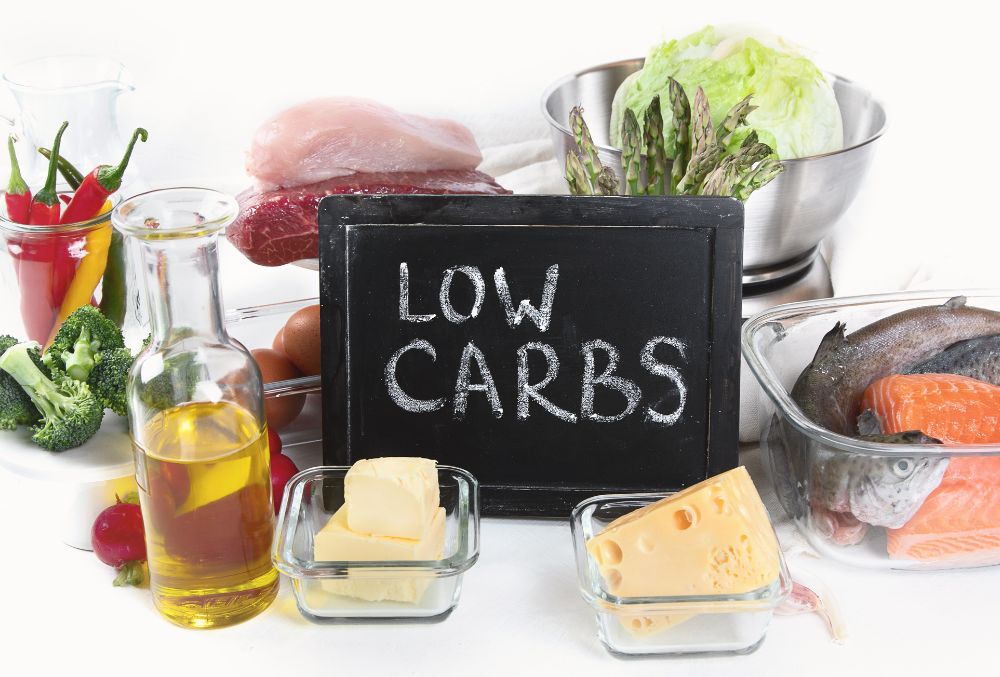
The Atkins diet is not a new phenomenon. The diet first appeared in the late 1970s and has grown popularity in recent years in response to the low-fat diet craze. As dieters had trouble with low-fat plans, they searched for a new solution and Dr. Atkins’ New Diet Revolution book found a new audience.
A lot of people have jumped on the Atkins bandwagon and there has been a lot of hype as a result. But what are the basic principles of the Atkins diet?
The Atkins diet is based on a theory of why we get fat. According to Dr. Atkins, the over-consumption of carbohydrates and simple sugars leads to weight gain. The way your body processes the carbohydrates you eat have more to do with your waistline than the amount of fat or calories that you consume. In his book, Atkins outlines a phenomenon called “insulin resistance.” He theorizes that many overweight people have cells that do not work correctly.
When you eat excess carbohydrates and sugar, your body notices that sugar levels are elevated. Insulin is released from the pancreas in order to store sugar as glycogen in the liver and muscle cells for extra energy later on. However, your body can only store so much glycogen at once. As soon as your body reaches its limit for glycogen storage, the excess carbohydrates are stored as fat. This happens to everyone who eats too many carbohydrates.
However, insulin resistant individuals have an even harder time of using and storing excess carbohydrates. The more insulin that your body is exposed to, the more resistant it becomes. Overtime, the pancreas releases more insulin and cells become insulin resistant. The cells are trying to protect themselves from the toxic effects of high insulin. They create less glycogen and more fat.

As a result, insulin resistant individuals gain extra weight. The carbohydrates get converted into fat instead of energy. Other side effects include fatigue, brain “fog” (the inability to focus, poor memory, loss of creativity), low blood sugar (which can leads to hypoglycemia), intestinal bloating, sleepiness, depression and increased blood sugar. There is much more than weight at stake when you are insulin resistant.
The remedy for people who are insulin resistant is a diet restricted in carbohydrates. The crux of the Atkins diet is a limitation of carbohydrates in all of its forms. The foods restricted on the Atkins plan include simple sugars (like cookies, sodas and sweets) and complex carbohydrates (like bread, rice and grains). Even carbohydrates that are considered healthy, such as oatmeal, brown rice and whole wheat bread, are restricted on the program.
The diet has you restrict your carbohydrate intake to less than 40 grams a day. This will put your body in a state of ketosis. While in ketosis, your body will burn fat as fuel. According to Dr. Atkins’ research, the ketosis state will also affect insulin production and it will prevent more fat from being formed. Your body will begin using your stored fat as an efficient form of fuel, and you’ll lose weight.
Another benefit of the Atkins plan is that ketosis will end your cravings for carbohydrates. If you’ve been living on a carb-heavy diet, you may have found that you simply cannot get enough carbohydrates. With carbohydrate restriction and ketosis comes a reduction in carbohydrate cravings. People who have been on the Atkins diet for some time report that they do not crave carbohydrates as they once did.
Although the initial phases of the Atkins diet are rather strict, the program teaches you to restore balance to your diet in the long run. People who use the diet slowly reintroduce minimal amounts of carbohydrate into their eating until they find a comfortable balance between their health and carbohydrate use.
The basic principles of the Atkins diet have been adapted to many other low-carb diet plans. However, Atkins popularity still remains strong as one of the most effective low-carbohydrate solutions for those who are insulin resistant.
Is Atkins right for you
The Atkins diet is very popular, but is it right for you? Before you start down the low carb road, you should take some time to decide whether low carb is the right way for you to lose weight. Just because it has been effective for others doesn’t mean it will be right for you. No specific diet works for everyone, and you may even find that a type of low carb diet that works better for you than another. There are many things to consider before you start the Atkins diet.
First, evaluate your past dieting history. If you’ve been trying to lose weight for a long period of time, you’ve no doubt tried a wide variety of diets. Take note of the different diets you’ve tried over the years. Write down the basics of each diet, what worked and what didn’t. Also, write down why you didn’t stay on the particular diet. Evaluate your experience with high carbohydrate diets. These types of diets include most low-fat and calorie controlled diets. How did you feel while on these types of diets? Were you hungry, obsessed with food or experiencing negative reactions? Or did you feel full of energy and generally good?
If you’ve had experience with low carb diets, write that down as well. Past the negative effects of the first week, how did eating low carb make you feel? Why did you stop using the low carb diet?
The answers to these questions will help you decide whether Atkins is right for you or not. If you’ve had good experiences with low-fat diets and bad experiences with other low carb diets, then Atkins is probably not for you. If other low-carb diets have worked but not without difficulty, then you may have been on the wrong type of low-carb diet and Atkins might work better. If you’ve had bad experiences with both types of diets, then you may have better success with a modified Atkins diet.
Your food and eating behaviors can also give you a clue to whether or not Atkins is a good choice for your weight loss efforts. Carb sensitivities are indicated by a certain set of behaviors. You may be carb sensitive if you feel like eating right after you’ve finished a meal. You will also feel strong urges to eat throughout the day. You may feel dizzy, fuzzyheaded and fatigued without getting a boost from sugar or another carbohydrate. Carb sensitivity is also shown when you feel sluggish after eating. This occurs especially after you eat a meal rich in sugars and carbohydrates. If you experience these symptoms frequently, you may have carb sensitivities. Try paying close attention to how carbohydrates affect you and if you continue to experience these symptoms, try doing a low carb diet.
Your success on the Atkins diet can also be determined by your medical and family history. If you have any pre-diabetic symptoms, or diabetes itself, a reduced carb diet like Atkins may be right for you. Significant weight gain can also be helped by the Atkins diet. Normally, the more overweight you are, the more likely you are to have high blood pressure, high triglycerides and high blood glucose.
If any member of your family has diabetes or is significantly overweight, this can also put you at risk for these conditions. Your tendency toward these conditions on a genetic level can mark a necessity for a low carbohydrate diet like Atkins. The Atkins plan has been shown to improve weight and control blood sugar issues. If these are problems in your family history, then you may want to consider the Atkins diet.
There are a lot of good reasons to try the Atkins diet. Whether you have responded well to other low carb diets in the past or you have a medical history that warrants a controlled carbohydrate diet, the Atkins diet can meet your needs.
Atkins Criticism
The Atkins diet is very popular, but it also comes with a lot of criticism. Health experts, doctors and diet specialists come from all different opinions when it comes to the Atkins diet and other low carb diets. Some believe that it is dangerous, some say that it is a healthy method to lose weight and others say that it works on a short-term basis.
However, there are also thousands of individuals who have found success with the Atkins diet. They can speak from personal experience and know that the diet works and it is an effective means of keeping weight off. There are thousands of testimonials that tout the benefits of the low carb way of living.
There are many typical criticisms of the Atkins diet. One of the first is that the diet it too high in fat. The butter, oil and fatty meats that are used in the Atkins diet are a far cry from the low-fat diet fad that recently swept the nation. For many people, the low fat mindset has prevailed and they cannot fathom eating real butter or cream with their meals. It seems like too much fat at first glance. However, those that pay close attention to Dr. Atkins guidelines and follow the program closely know that the diet focuses on good fats. Extra virgin olive oil and other helpful fats are emphasized. The proper use of these oils is important to brain function and mood management.
Another popular Atkins criticism is that it focuses too much on food and not enough on exercise. This is an unfair claim because the Atkins books clearly spell out a need for exercise. There is a lot of attention paid to food choices because they are an integral part of the program, and they are different foods than what people are normally used to eating. However, this does not mean that exercise is not an integral part of the Atkins program. Aerobic and anaerobic exercise regimens are encouraged, and both will greatly increase your weight loss efforts.
Many Atkins critics feel that the diet is hard too keep up in the long term. Critics in this category will admit that Atkins is effective in short-term weight loss efforts, but point out that the lifestyle is hard to maintain over time. However, people who have had long term success with Atkins claim it is one of the easiest diets to follow for significant periods of time. The Atkins plan has rich food that is forbidden on other programs, and it has appetite-suppressing effects. When you combine this with the quick weight loss, a motivating factor for many people, Atkins is easy to stick to long term.
The side effects of Atkins, like constipation and bad breath, have also been a topic that Atkins critics are quick to point out. However, these side effects are not as common as critics make them out to be. If they do occur, the side effects normal only last through the first phase of the diet. Additionally, drinking additional water will normally take care of both problems rather quickly.
There are pros and cons to many diets. If you don’t particularly enjoy preparing and eating meat, then Atkins is probably not for you. But if you are considering Atkins, make sure to look beyond the common criticisms for the truth about the diet.



